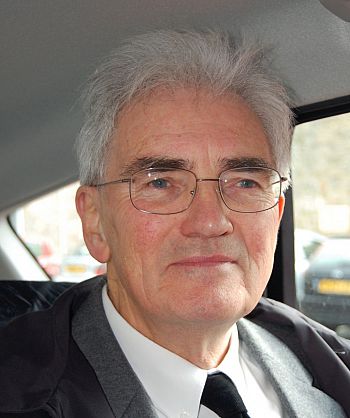Obituary: Malcolm Topping
Dr Malcolm Topping, retired Senior Lecturer in Chemistry, died on 16 May following a long illness.
 Richard Malcolm Topping graduated from UMIST (Manchester) with a BSc and PhD in chemistry before periods of post-doctoral research at USC (California) and Cornell University (New York State).
Richard Malcolm Topping graduated from UMIST (Manchester) with a BSc and PhD in chemistry before periods of post-doctoral research at USC (California) and Cornell University (New York State).
He was appointed to a lectureship in chemistry at Sussex in 1963 - only a year after the appointment of the first chemistry staff.
He was punctilious in dividing his energies between undergraduate teaching, administration and his research and spent a lot of time mastering unfamiliar material in order to be an effective tutor to students.
He cared greatly for the academic and social welfare of students (especially his personal students) and was an extremely effective Chairman of Norwich House (one of the University's first halls of residence), living there for five years with his new wife and family.
He spent considerable time taking part in student admissions throughout his time at Sussex.
He was an active supporter of the exchange scheme between Chemistry at Sussex and the University of Uppsala and spent time in Sweden as part of this.
Malcolm was a very effective speaker and gave riveting undergraduate lectures, especially when given the opportunity to talk about his particular interests. For many students his lectures on, for example, pesticides, or the effects of asbestos and smoking on health, were the most memorable of their degree (long before these topics became run-of-the-mill public concerns).
He was in demand from Sussex schools to give lectures on a variety of topics.
He refused a (flattering) offer of a reduced teaching load as a reward for research excellence but thought it wrong because it would increase the workload of colleagues.
Malcolm was a successful supervisor of PhD and post-doctoral students, many going on to be very successful in research.
He was determined that his research should be of real benefit, hence his co-operation with senior doctors in Brighton, particularly in developing sophisticated techniques for early diagnosis of conditions such as diabetes, asbestosis, cancer and liver disease.
One of his research students, from Sri Lanka, told Malcolm that unripe papaya was a Sri Lankan folk contraceptive. Malcolm encouraged him to investigate why this could be effective and the research led to wide national and international media interest.
He was Director of Laboratories at a particularly difficult time for the then School of Molecular Sciences and gave meticulous attention to the School’s accounts, making sure the numbers were correct and the money went where it was intended.
Outside academic life, Malcolm was passionate about music, the arts (photography in particular) and walking.
Many will remember his prowess as a tennis player. He was Virginia Wade’s practice opponent when she was a Maths student at Sussex, about to achieve tennis greatness, but also played with many colleagues, including two Nobel Prize winners. He was also a regular and good (lunchtime) table tennis player.
Sharpness of intellect, kindliness, integrity, impartiality and good judgement combined with a good sardonic sense of humour were among the characteristics which made Malcolm a good friend and a valued colleague who is much missed.
Dr Michael Ford-Smith and Prof Norman Billingham, Chemistry
